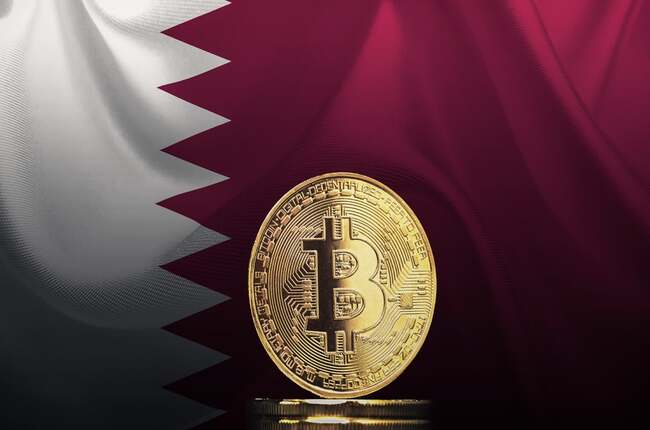Highlights:
- Qatar shifts from banning Bitcoin to developing a digital assets regulatory framework
- The QFC launches a Digital Assets Lab to foster blockchain and digital asset innovation
- Qatar aims to finalize and enact the digital assets framework by Q4 2024
Qatar is moving towards establishing a regulatory framework for digital assets, marking a significant shift from its strict stance against cryptocurrencies. In 2018, Qatar banned Bitcoin trading. However, recent developments suggest a cautious yet progressive change in approach.
📊 Qatar is advancing its digital economy by establishing a legal framework to recognize digital assets, Crypto News reported. Henk Jan Hoogendoorn, Qatar Financial Centre's Chief of Financial Services Sector, stated that the framework for tokenizing real-world assets, including…
— BitcoinWorld Media (@ItsBitcoinWorld) July 29, 2024
Qatar Develops Framework for Tokenizing Real-World Assets
Henk Jan Hoogendoorn, Chief of the Financial Services Sector at Qatar Financial Centre (QFC), announced that Qatar has developed a robust framework for tokenizing various real-world assets. This includes securities, debt capital market instruments, investments, Sukuk, and other asset classes. He added that the framework is expected to be finalized and enacted by the fourth quarter of this year.
Last year, Qatari regulators proposed rules for investment tokens backed by tangible assets. The Qatar Financial Centre Regulatory Authority (QFCRA) and the QFC Authority (QFCA) collaboratively developed this framework. This initiative aims to support Qatar’s digital economy strategy.
The QFC also established a Digital Assets Lab to foster innovation in the financial and digital asset sectors. The lab provides a collaborative platform for startups, businesses, and researchers to develop digital asset and blockchain solutions. This effort aligns with Qatar’s goal of becoming a global digital innovation leader.
Qatar Embraces Crypto with New Regulatory Framework
In 2018, Qatar banned Bitcoin trading. However, its stance has been shifting. Regulators proposed rules for investment tokens backed by tangible assets, indicating a cautious move into the crypto market. This move came later than in neighboring countries like the UAE and Bahrain.
The regulators sought industry feedback to refine the proposed regulations, with the final legislation expected in the fourth quarter of 2024. The QFC’s Digital Assets Lab encourages innovation in the financial and digital asset sectors.
Maha Al-Saadi, Head of Regulatory Affairs at QFCA, stated, “The Digital Asset Framework represents a pivotal milestone in our journey towards fostering innovation and growth within Qatar’s financial landscape.” The lab offers a collaborative space for startups and researchers to explore solutions related to digital assets and blockchain.
Qatar Faces Challenges in Crypto Adoption Amid Regulatory Efforts
Despite this progress, Qatar’s path to crypto adoption has not been smooth. In May, the Financial Action Task Force (FATF) criticized Qatar for being too lax on terrorist fundraising and urged the Qatar Central Bank to be more proactive in sanctioning Virtual Asset Service Providers (VASPs) that breached the crypto ban.
Qatar’s involvement with cryptocurrencies extends beyond regulations. Crypto.com became a sponsor of the 2022 FIFA World Cup, hosted in Qatar, and was announced as the “exclusive cryptocurrency trading platform sponsor of Qatar 2022.” The QFCRA and QFCA have created the digital assets framework together. This initiative aims to enhance Qatar’s digital economy strategy and further solidify the QFC’s role as a premier financial and business hub in the Middle East.
To refine the proposed framework, the QFC sought feedback from industry professionals and businesses on its structure, content, and practicality. The deadline for submitting comments was on January 2, 2024.
Qatar Advances Digital Currency Framework for Innovation
In June, Qatar’s central bank completed the foundation for its digital currency and is now ready to test it. The central bank plans to partner with local and international banks to refine the system and ensure it can handle large payments using the latest technology.
Qatar’s move to develop a comprehensive regulatory framework for digital assets marks an important step towards embracing digital innovation. The new regulations aim to provide a secure and regulated environment for digital asset transactions, aligning with global standards.
Developing a digital assets framework and establishing the Digital Assets Lab demonstrate Qatar’s commitment to fostering an innovative financial ecosystem. As the country continues to refine its approach to digital assets, it positions itself as a key player in the global digital economy. Qatar’s journey towards crypto adoption and regulation highlights the evolving landscape of digital assets in the Middle East.
Learn More
- Next Cryptocurrency to Explode in July 2024
- Crypto Price Predictions
- Best Solana Meme Coins to Buy In 2024
- Financial Firm SBI to Roll Out Bitcoin ETFs in Japan
- Is it Too Late to Buy Stacks? STX Price Soars 10% as the Bulls Gain Control, Eyeing $2.50 Mark
- Promoters of Forcount Ponzi Scheme Admit Guilt in $8.4 Million Crypto Fraud
- India’s 2024/25 Budget Keeps Crypto Tax Rules Unchanged






